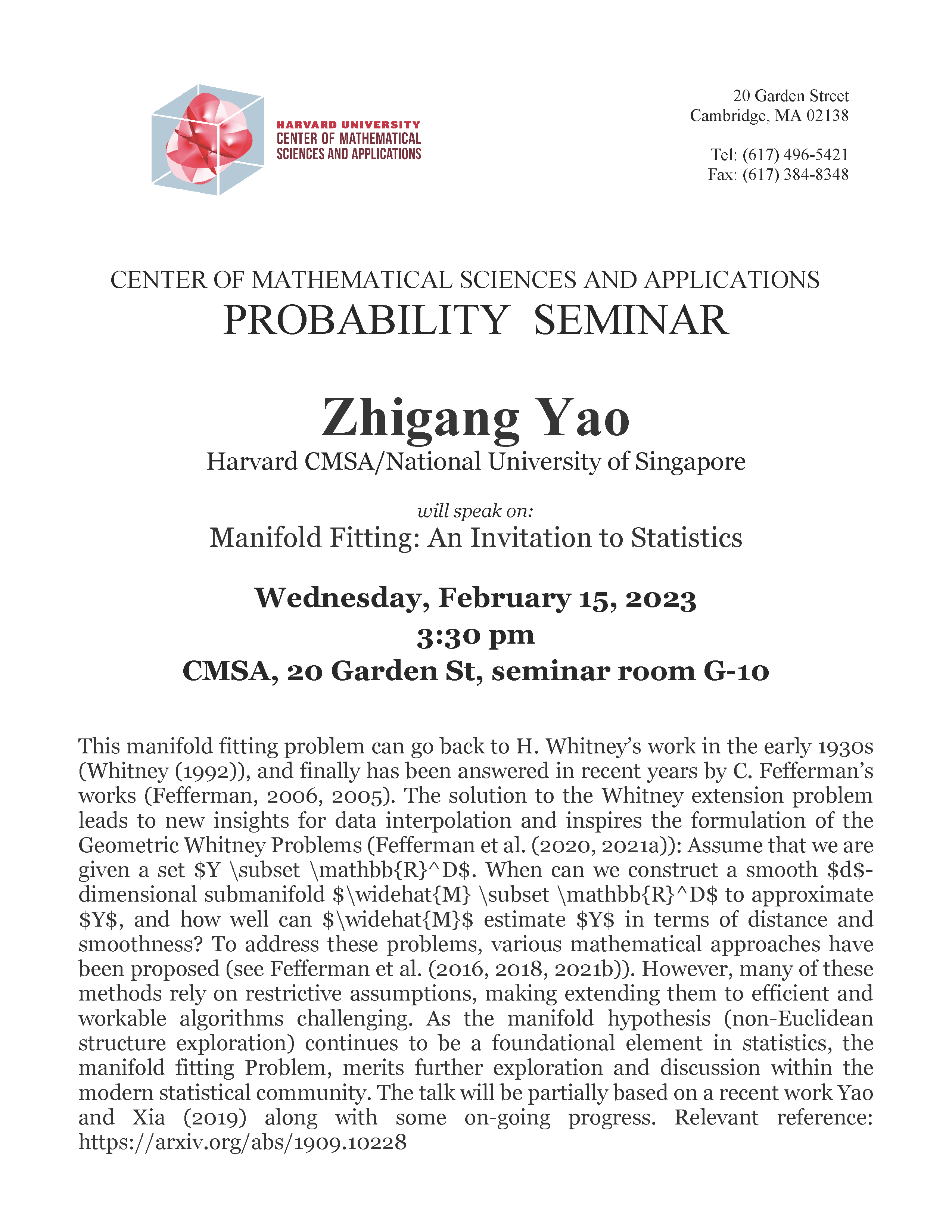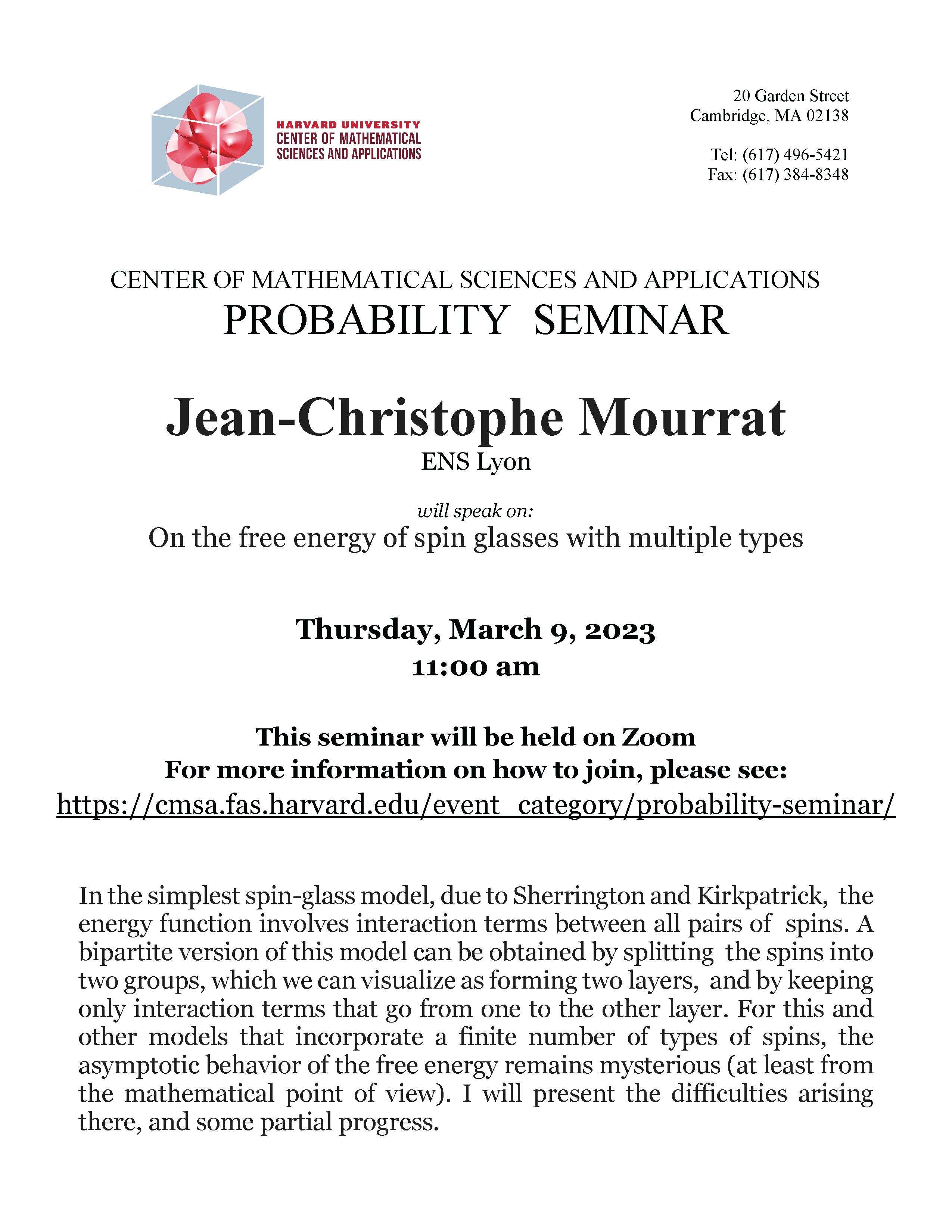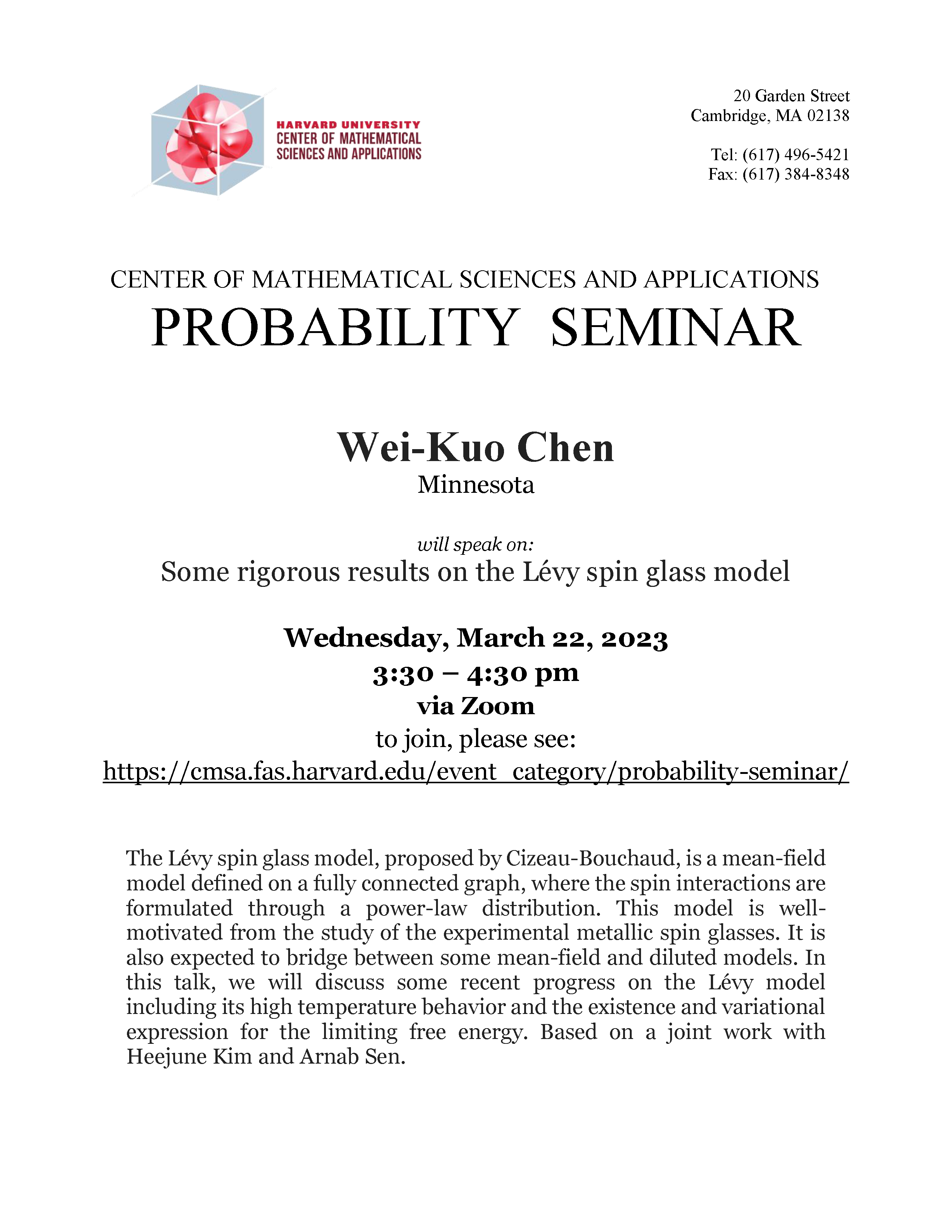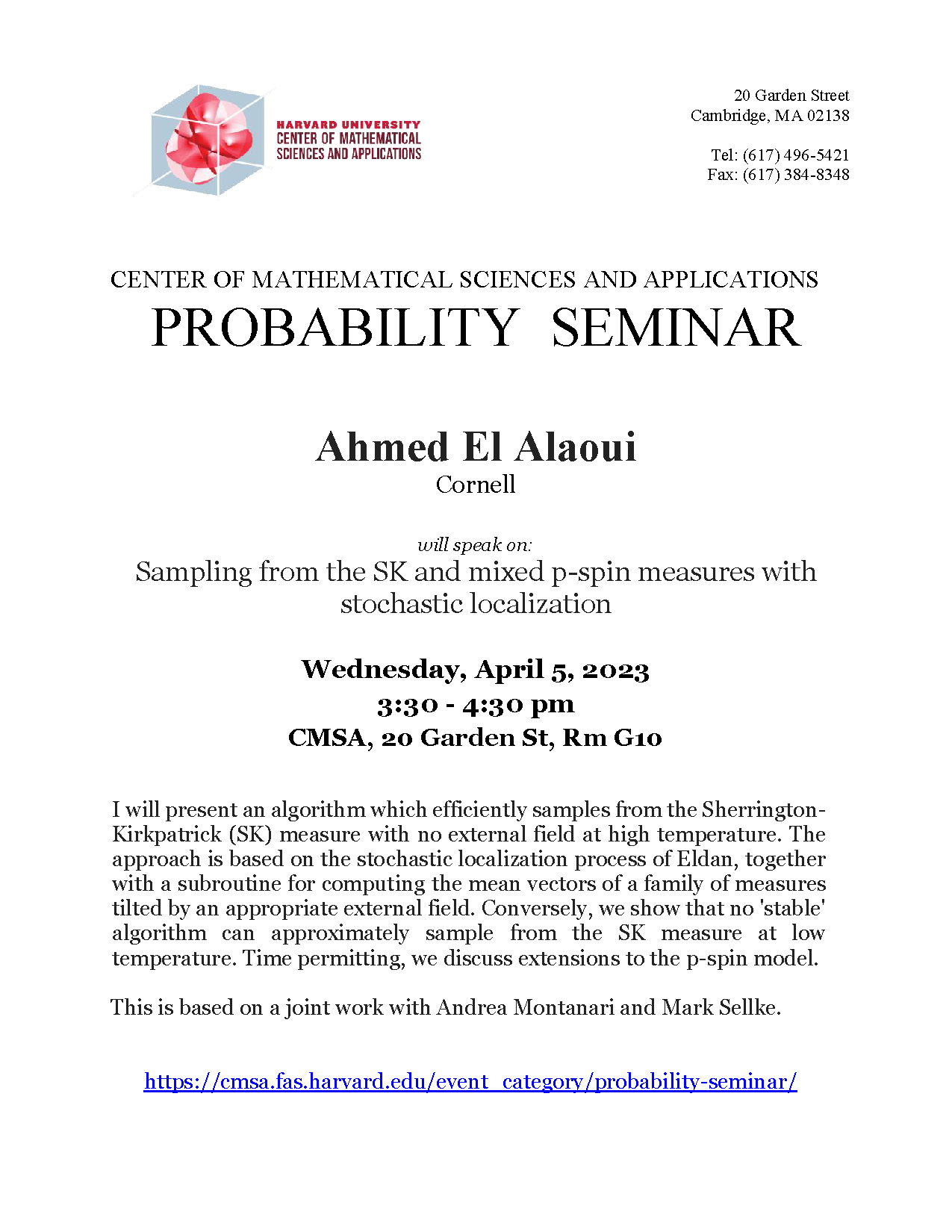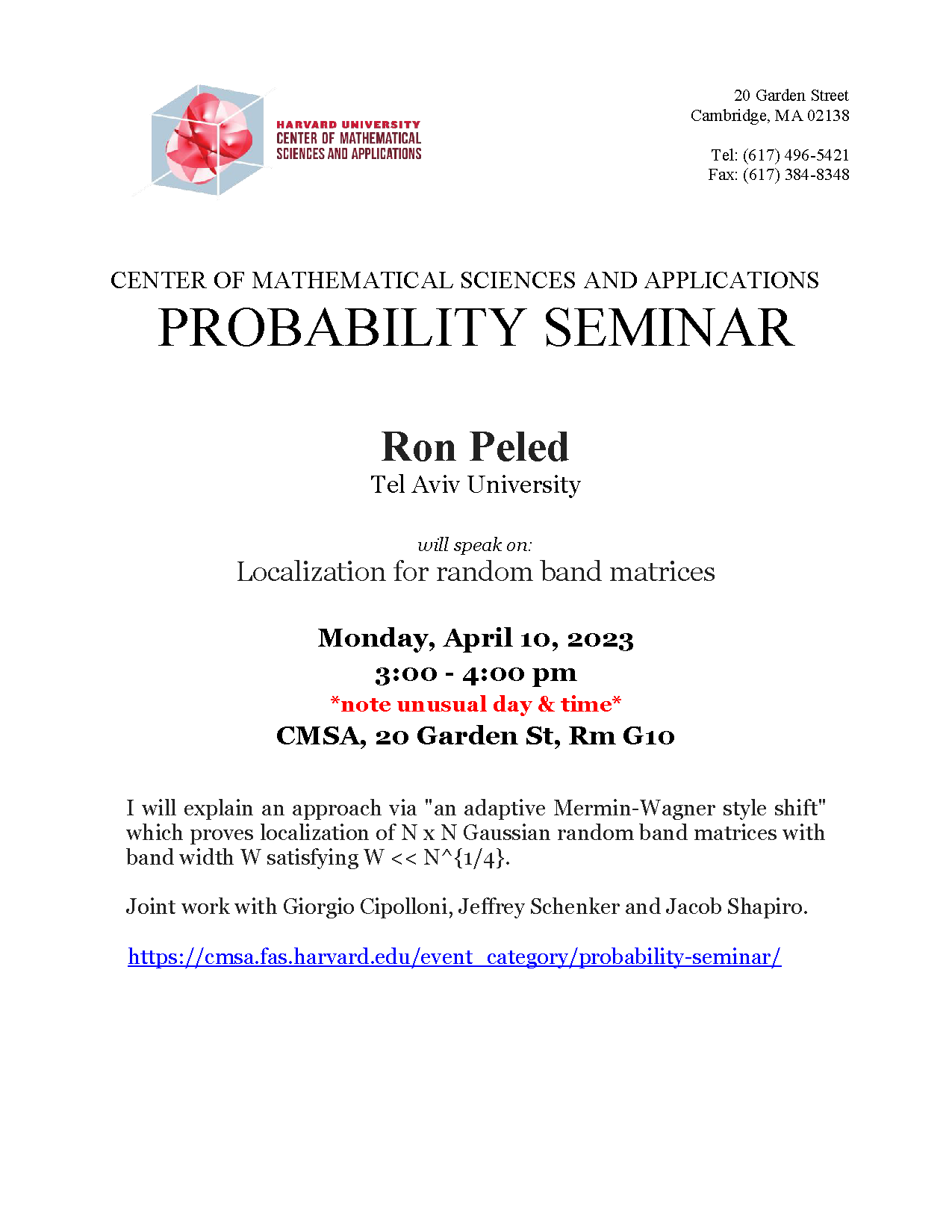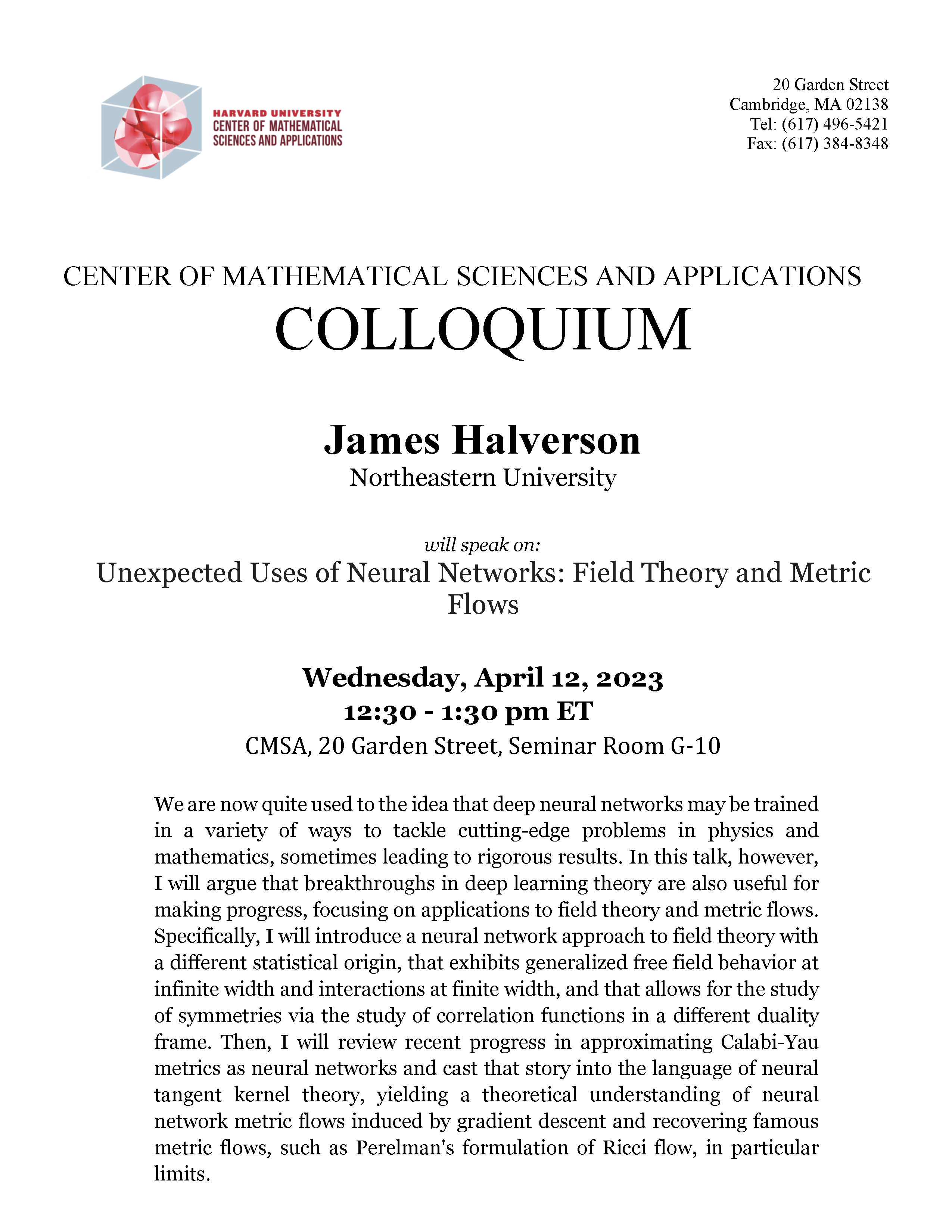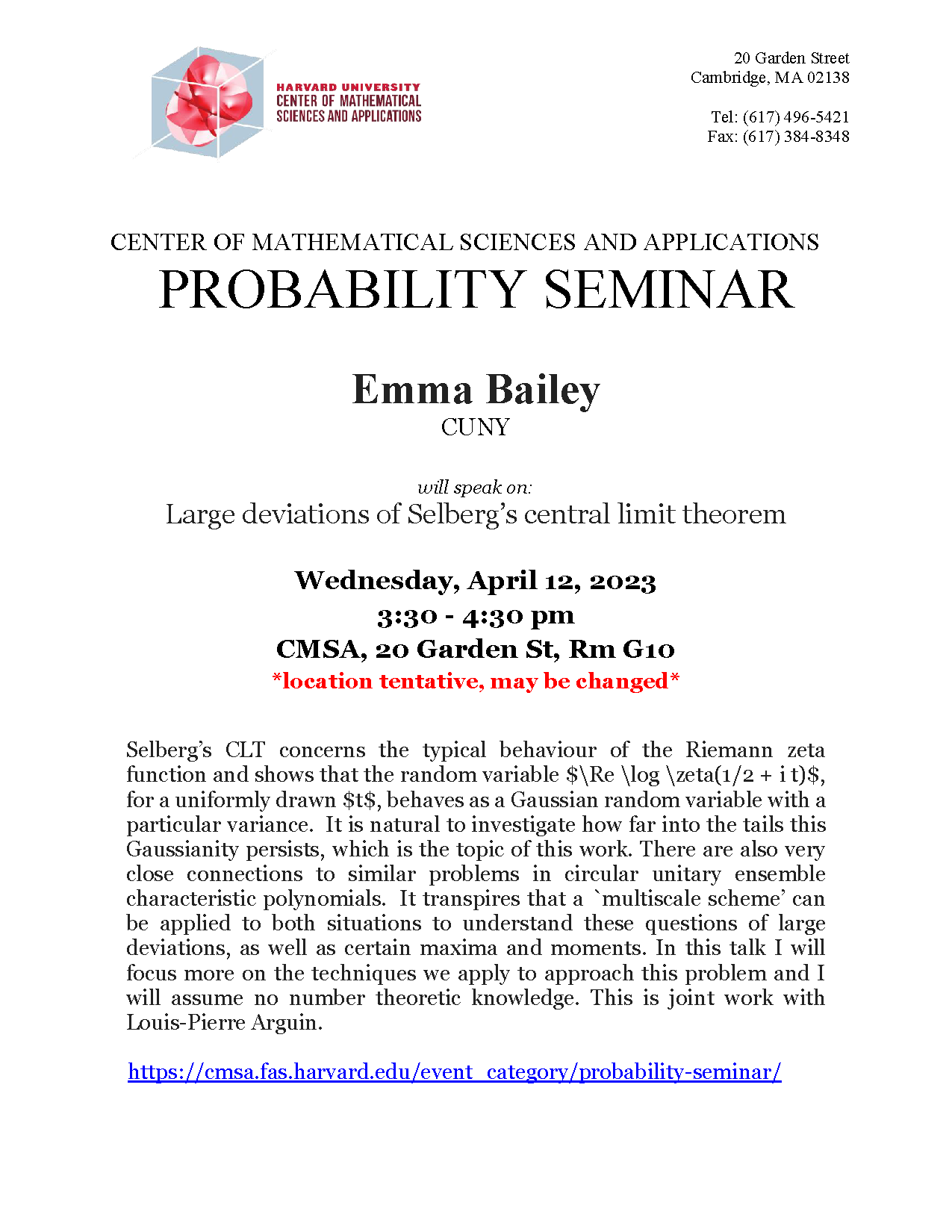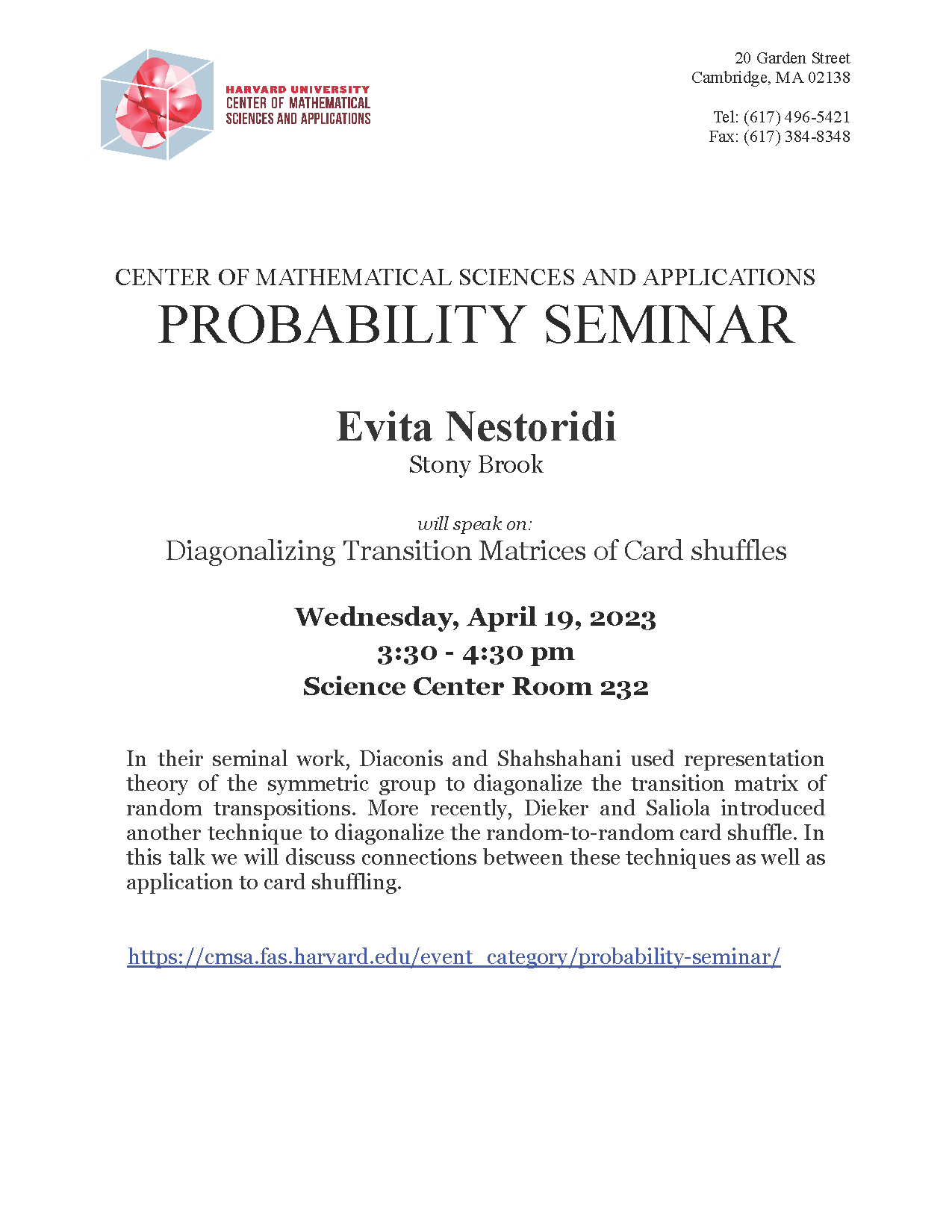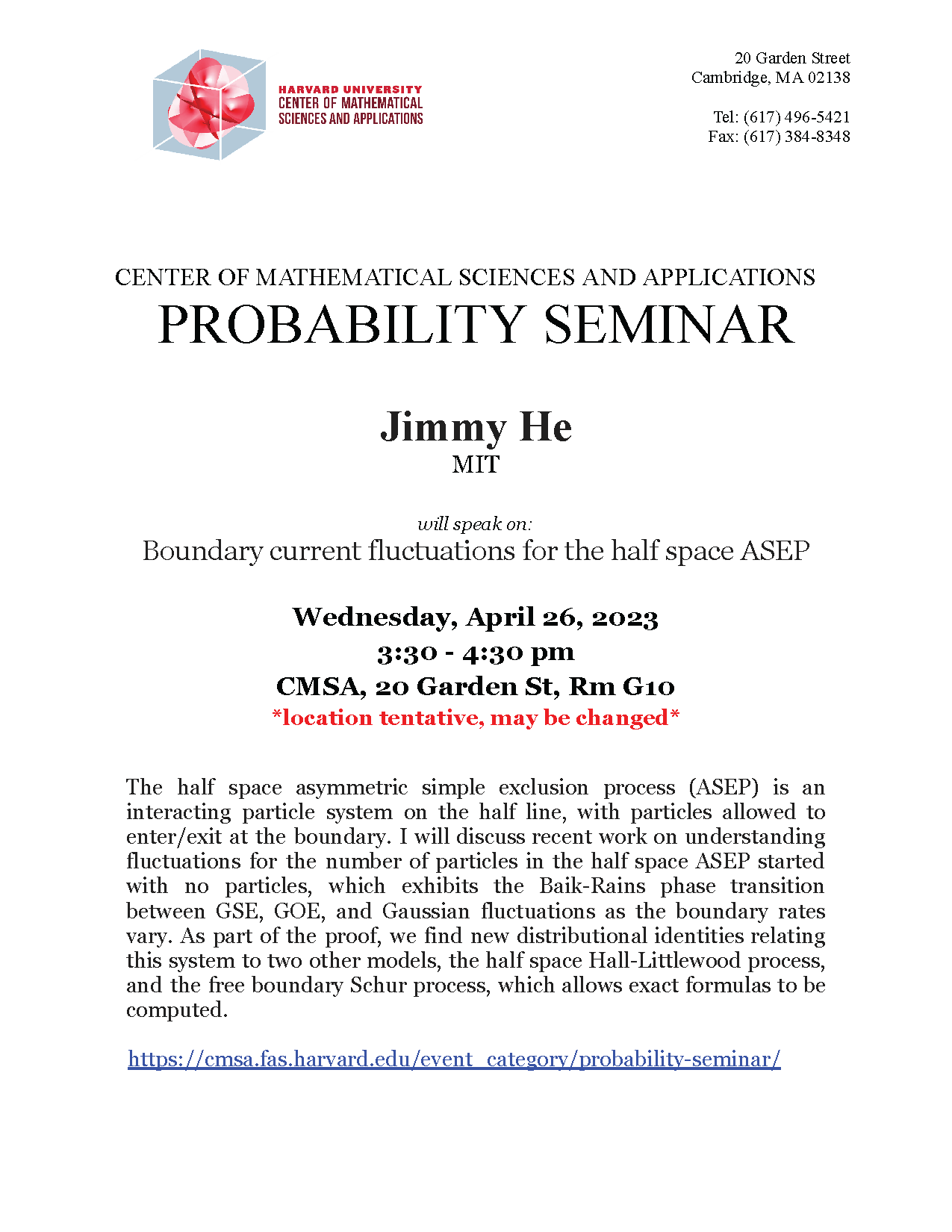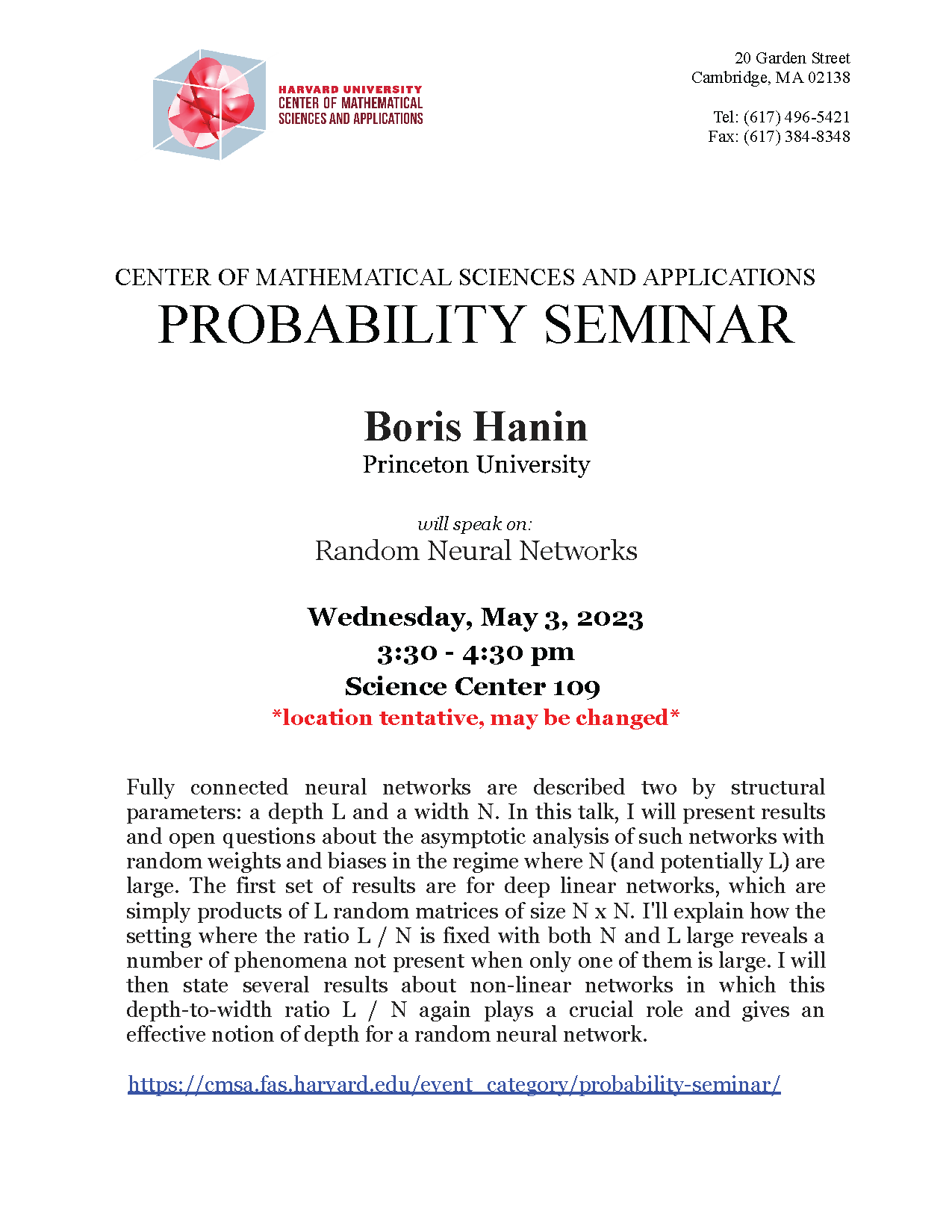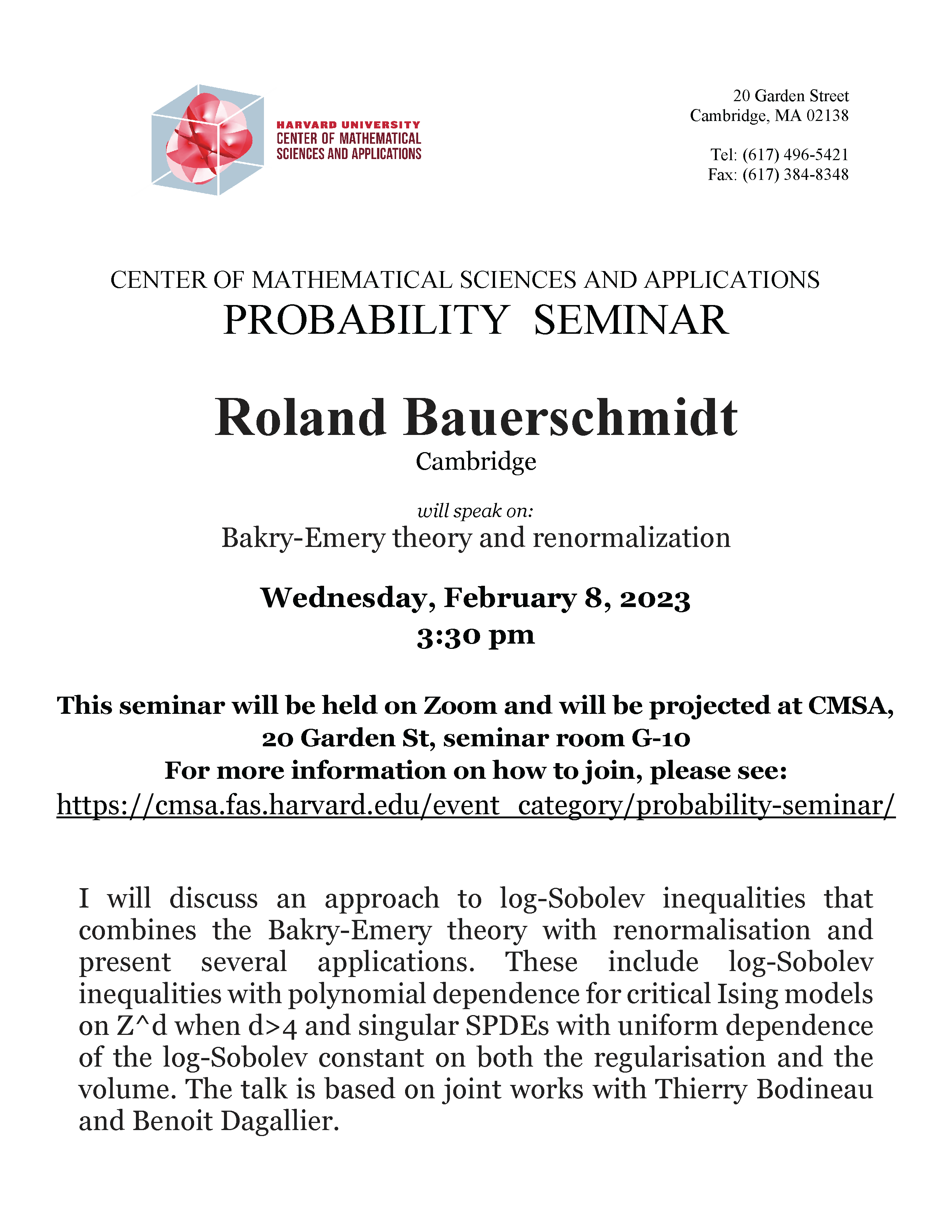
Bakry-Emery theory and renormalisation
HybridProbability Seminar Speaker: Roland Bauerschmidt (Cambridge) Title: Bakry-Emery theory and renormalisation Abstract: I will discuss an approach to log-Sobolev inequalities that combines the Bakry-Emery theory with renormalisation and present several applications. These include log-Sobolev inequalities with polynomial dependence for critical Ising models on Z^d when d>4 and singular SPDEs with uniform dependence of the log-Sobolev […]

